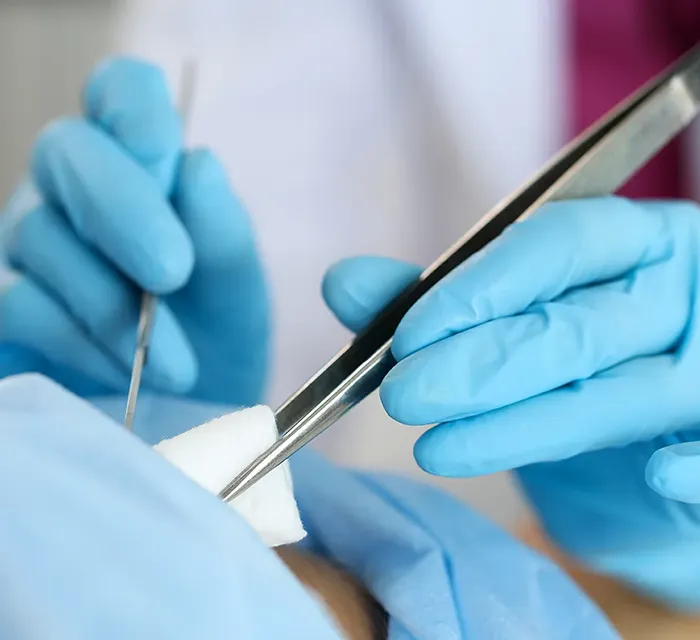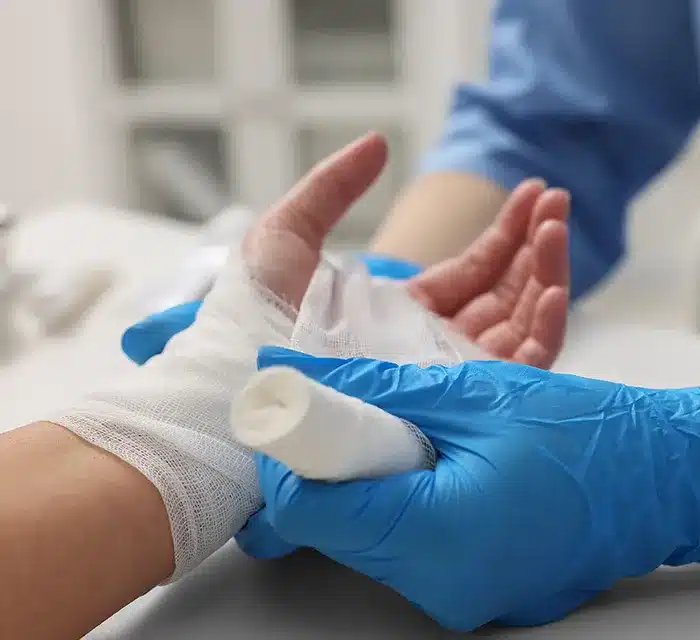What is an ostomy?
An ostomy is a surgical procedure to reroute urine or stool and gas outside of the body through an opening called a stoma.
People with certain digestive or urinary issues may need ostomy surgery, such as people with:
- Pelvic cancers: colorectal, prostate, ovarian, uterine, cervical, or bladder
- An injury to the small or large intestine
- A blockage in the bowel
- Inflammatory Bowel Disease (IBD), such as ulcerative colitis and Crohn’s disease
- Diverticulitis – inflammation of small pouches in the colon
- Neurological dysfunctions that cause incontinence: Alzheimer’s disease, brain or spinal cord tumors or injury, cerebral palsy, encephalitis, multiple sclerosis (MS), Parkinson’s disease, or stroke
The most common types of ostomies are:
- Colostomy redirects stool and gas from the large intestine (colon)
- Ileostomy redirects stool and gas from the ileum, the lowest part of the small intestine
- Urostomy redirects urine from the bladder
Depending on the patient’s healthcare needs, an ostomy may be temporary or permanent.
Ostomy supplies
A pouching system consists of an ostomy pouch that collects urine or stool, and a skin barrier that attaches to the skin around the stoma. The pouch is worn outside the body, and is easily concealed under clothing.
Choosing the right supplies will help you stay comfortable and live confidently.
We explain the different types of pouching and skin barrier systems, and help select the best types for you based on stoma size, shape, and location, skin type, and lifestyle – for a proper, leakproof fit. We work directly with medical equipment supplies to order samples and set up reorders. We can also help verify which supplies your insurance covers.
If you have an existing stoma and you’re experiencing leaks or skin irritations, we can re-assess your current supplies and provide suggestions for different supplies if needed.
Caring for your ostomy
After surgery and for ongoing management, our certified wound-ostomy nurses are here to compassionately support you and your family or caregivers. We will teach you how to live well with an ostomy.
We’ll show you how to:
- care for your stoma following surgery
- order supplies
- empty and change your pouch
- care for your stoma and surrounding skin (peristomal skin)
- avoid pouch leaks
- manage output and odor with diet
- prevent dehydration, constipation, and blockages
- incorporate ostomy into daily living
What to expect
On your first visit, you will meet with a provider and with an ostomy-certified nurse for a comprehensive evaluation. We will continue to work with you twice a week, then weekly to get feedback from you on what is working, what is not, and to answer your questions. As you build confidence in caring for your ostomy site, the frequency of visits will taper off.
Referrals
Referrals are accepted, but not required.
Service Area
Our primary service area is McLeod County, Minnesota including: Biscay, Brownton, Glencoe, Hutchinson, Lester Prairie, Plato, Silver Lake, Stewart, and Winsted. We also service parts of Sibley County, including: Arlington, Gaylord, Green Isle, New Auburn, and Winthrop, as well as the western part of Carver County, including: Hamburg, Norwood, and Young America, and part of Renville County, including: Buffalo Lake.











